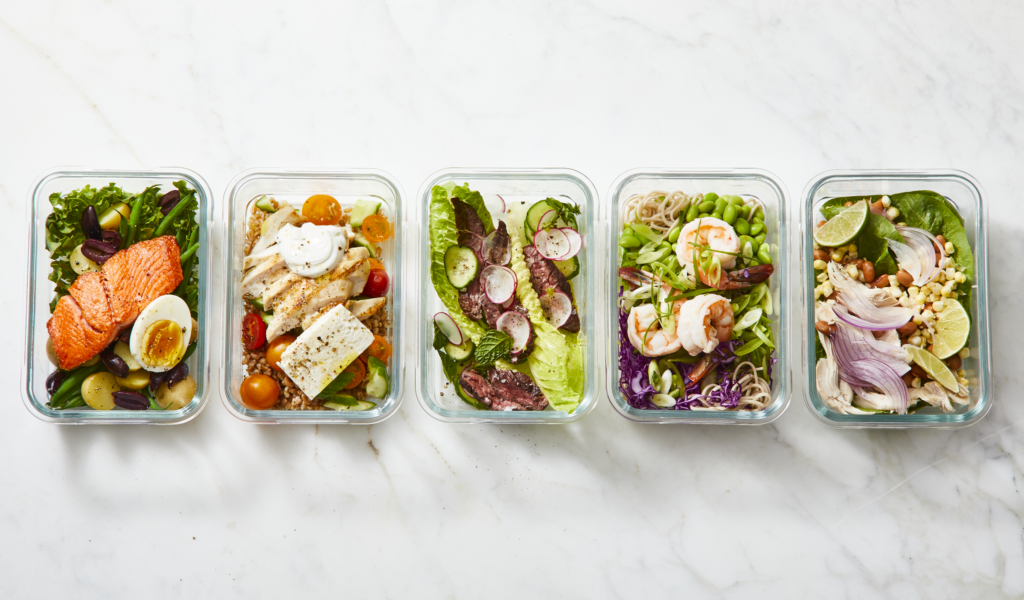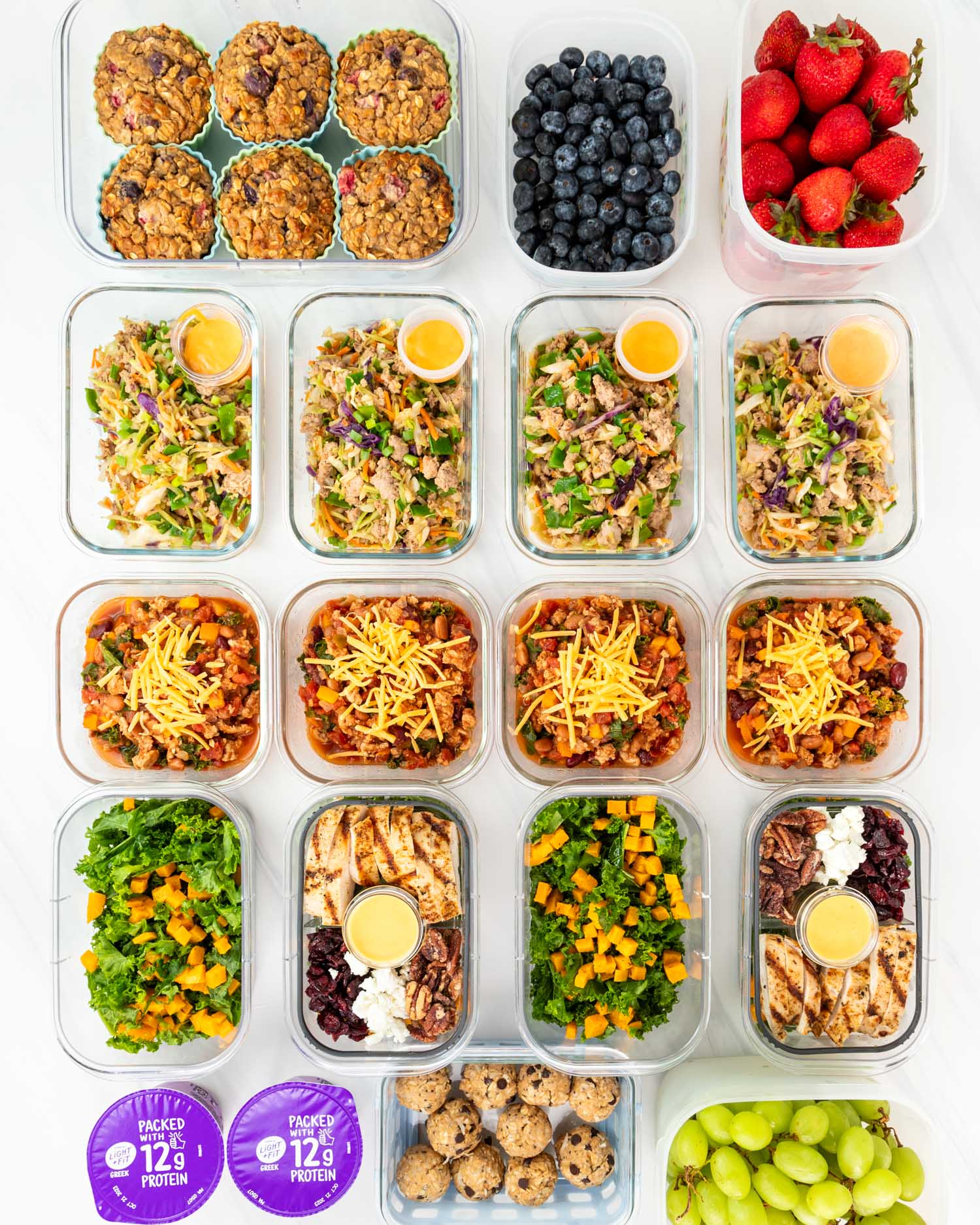 When I first started planning and preparing food for the week, I was skeptical about how much it would actually help. Would I really save time? Could I stay consistent? Now that I’ve been doing it for months, I can confidently say the benefits are real—and they’ve extended far beyond what I expected.
When I first started planning and preparing food for the week, I was skeptical about how much it would actually help. Would I really save time? Could I stay consistent? Now that I’ve been doing it for months, I can confidently say the benefits are real—and they’ve extended far beyond what I expected.The biggest win has been cutting down on decision fatigue. Before meal prepping, I’d spend precious mental energy each day figuring out what to eat. Now, my meals are ready and waiting, giving me one less thing to worry about.
Another unexpected benefit has been the improvement in my eating habits. Having pre-portioned meals makes it easier to avoid overeating and stick to healthier choices. Even on my busiest days, I’m eating balanced meals instead of resorting to snacks or fast food.
How to Plan and Prepare Food for the Week: Tips for Staying Consistent
Like any lifestyle change, staying consistent with meal prep requires some effort. Here’s what has worked for me:
- Start small: At first, I only prepped two or three meals a week. This made the process less overwhelming and gave me time to build confidence.
- Choose simple recipes: I used to think I needed gourmet-level meals to make meal prep worthwhile, but basic recipes are often the most effective. A batch of roasted vegetables and baked chicken can go a long way.
- Set a routine: I block out Sunday afternoons for meal prep. It’s become a non-negotiable part of my week, and having it in my schedule helps me stick to it.
Consistency is key when learning how to plan and prepare food for the week, but don’t be too hard on yourself. Some weeks I prep less or skip it altogether—and that’s okay.
How to Plan and Prepare Food for the Week: Common Mistakes and How to Avoid Them
I’ve made my fair share of mistakes while learning how to plan and prepare food for the week. Here are a few pitfalls I’ve encountered and how I’ve adjusted:
- Over-prepping: Early on, I tried to make five different dinners each week. By day three, I was overwhelmed and tired of cooking. Now, I focus on two or three core meals and rotate them.
- Forgetting snacks: I used to only prep meals, but then I’d find myself grazing on chips or crackers. Now, I portion out healthy snacks like trail mix, veggies with hummus, or boiled eggs.
- Skipping cleanup: After a big prep session, I used to leave the mess for “later.” Bad idea. Cleaning as I go has made meal prep much less stressful.
These small adjustments have made a huge difference in how enjoyable and effective my meal-prep routine feels.
 How to Plan and Prepare Food for the Week: Adapting to Dietary Needs
How to Plan and Prepare Food for the Week: Adapting to Dietary Needs
Another thing I’ve learned is how adaptable meal prep is for different dietary needs. I’ve tried low-carb weeks, vegetarian plans, and even dairy-free options—all while sticking to my meal-prep routine.
For example, when I was experimenting with a plant-based diet, I focused on prepping dishes like lentil curries, quinoa salads, and roasted chickpea wraps. On low-carb weeks, I swapped out grains for cauliflower rice and used zucchini noodles in place of pasta.
The key is choosing recipes that align with your goals but are still easy to prepare. Meal prepping has made it much simpler to stick to my dietary experiments because everything is planned in advance.
How to Plan and Prepare Food for the Week: Batch-Cooking Favorites
Batch-cooking has been a game-changer for me. Instead of preparing individual meals, I’ll make large quantities of versatile ingredients that can be used in multiple dishes. Here are some of my go-to batch-cooking staples:
- Proteins: Grilled chicken, baked tofu, or ground turkey
- Grains: Quinoa, brown rice, or farro
- Veggies: Roasted sweet potatoes, steamed broccoli, or sautéed peppers and onions
For example, I might use batch-cooked quinoa as the base for a grain bowl on one day, mix it into a salad on another, and serve it as a side dish later in the week. This approach keeps my meals varied and exciting.
 How to Plan and Prepare Food for the Week: Tackling Picky Eaters
How to Plan and Prepare Food for the Week: Tackling Picky Eaters
If you’re cooking for a family, meal prepping can feel more challenging. My partner is notoriously picky, and we have different dietary preferences, but I’ve found ways to make it work.
One strategy is to prep components instead of fully assembled meals. For instance, I’ll roast chicken, cook a batch of rice, and chop up veggies, then let everyone build their own bowls or wraps. This way, each person can customize their meal without extra effort.
Another tip is to include at least one universally loved recipe each week. In our house, that’s spaghetti with meat sauce or a cheesy casserole. Having a crowd-pleaser in the rotation keeps everyone happy.
My Favorite Tools for Planning and Preparing Food for the Week
Over time, I’ve found a few tools that make meal prepping much easier:
- Glass storage containers: These are perfect for keeping food fresh and reheating safely in the microwave.
- Silicone baking mats: A game-changer for roasting veggies without the mess.
- A slow cooker or Instant Pot: Great for batch-cooking soups, stews, or shredded proteins.
- Reusable snack bags: Ideal for portioning out nuts, fruits, or crackers.
These tools have streamlined my meal-prep process and made it something I look forward to.
How to Plan and Prepare Food for the Week: The Long-Term Impact
After months of consistently planning and preparing food for the week, I’ve noticed more than just practical benefits. My relationship with food has changed for the better.
For one, I’ve become much more mindful of what I eat. Instead of grabbing whatever’s convenient, I’m intentional about fueling my body with nourishing, home-cooked meals.
I’ve also found that meal prepping brings a sense of accomplishment. There’s something incredibly satisfying about opening the fridge and seeing a week’s worth of meals neatly organized and ready to go.
And finally, the financial savings have been significant. By reducing food waste and cutting down on takeout, I’ve saved hundreds of dollars—a bonus I didn’t anticipate when I started.
Conclusion
planning and preparing food for the week has been a transformative habit that goes far beyond saving time—it has reshaped my approach to meals, improved my eating habits, and even saved money. What started as a skeptical experiment has turned into a routine that reduces decision fatigue, promotes healthier choices, and provides a sense of accomplishment. By starting small, staying consistent, and adapting to personal preferences and dietary needs, I’ve discovered that meal prepping is not only practical but also deeply rewarding.Whether you’re tackling busy schedules, exploring new diets, or feeding a picky family, meal prepping offers flexibility and solutions that can work for anyone. With the right tools, simple recipes, and a willingness to learn from mistakes, this habit can make your week smoother and your meals more intentional. The benefits—mental clarity, better nutrition, and financial savings—are well worth the effort. I hope my experience encourages you to take the first step toward making meal prepping a lasting and impactful part of your life.
FAQ: How to Plan and Prepare Food for the Week
Q: Do I need to prep every single meal?
A: Not at all! Start with just one or two meals per day. Even partial prep can make a big difference in your week.
Q: How do I avoid getting bored with the same meals?
A: Try using different seasonings or sauces to change up the flavors. For example, grilled chicken can feel brand-new with a teriyaki glaze one day and a spicy rub the next.
Q: What’s the best way to reheat prepped meals?
A: I prefer using a microwave for convenience, but an oven or stovetop works well for dishes like casseroles or stir-fries.
Q: How do I know how much food to prep?
A: Start by estimating how many meals you’ll need and adjust as you go. It’s better to slightly under-prep than overdo it and waste food.
Q: Can I meal prep if I have dietary restrictions?
A: Absolutely! Meal prepping is highly customizable. Focus on recipes that fit your dietary needs, and use substitutions where necessary.
Planning and preparing food for the week has truly transformed the way I approach meals. It’s a habit I’ll stick with for the long haul, and I hope my experience inspires you to give it a try.